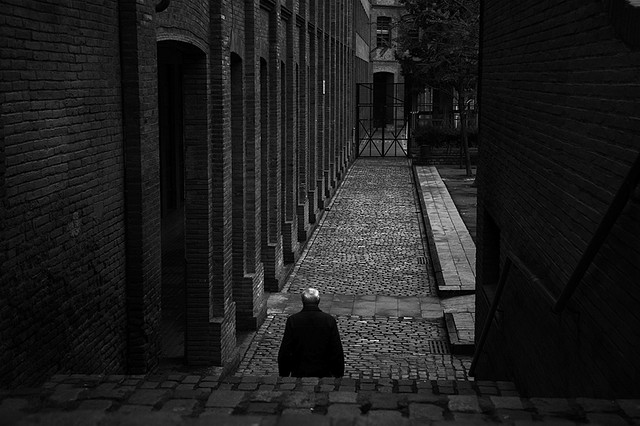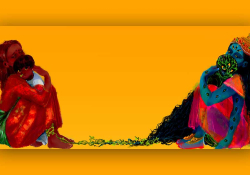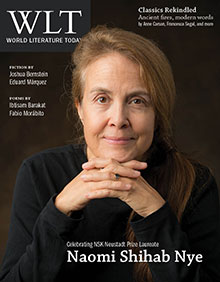Loneliness

Zugzwang: a chess position where any move is disadvantageous. Eduard Màrquez applies the term to his characters who, he observes, “are subjected to forces and situations that prove too great for them.”
While leaving the metro, bored and devoid of any desire to return home, Alberci Riner began to tail a man carrying a case for a musical instrument. Despite his inexperience in such matters, he supposes that the best approach is to follow someone easily identifiable in the crowd which, at that hour of the afternoon, fills the central streets of the city. The man with the case walks without direction, as if he had decided to gamble on red lights blocking his path, until he stops to look in the window of a haberdashery. Surprised by this sudden display of curiosity, Alberci Riner stops in front of an Indian bazaar two doors behind. Moments later, the man with the case, showing a conviction inconsistent with his previous meandering, resumes his walk behind a hunchbacked woman who left the haberdashery. Two streets further on, the hunchbacked woman enters a bargain shop. The man with the case leans on a mailbox and lights a cigarette. Alberci Riner crosses the street and waits without taking his eyes off the doors of the shop or the man with the case. A few minutes later, the hunchbacked woman leaves the bargain shop behind a pregnant girl. Arriving at a plaça with swings, the pregnant girl sits in front of a dirty sandbox and watches the children play. The hunchbacked woman crochets. The man with the case pulls out a notebook and writes down something. Alberci Riner bites his nails. When the afternoon begins to wane, frayed like a towel washed too many times, the pregnant girl leaves the plaça behind a man with a toolbox. The hunchbacked woman, the man with the case, and Alberci Riner linger in order to dissimulate, and as each of them arrives in turn, they pull up short as if they remembered that they had something to do. The streets, with the growing darkness, hoard lights and premature nightwalkers. Alberci Riner takes a while to become aware of the eyes on the back of his neck. But he doesn’t dare turn round.
Barcelona
Translation from the Catalan
By Lawrence Venuti
Editorial note: Translated by permission of the Cristina Mora Literary & Film Agency, Barcelona.










